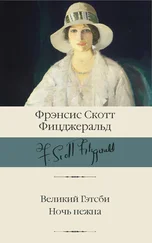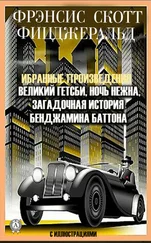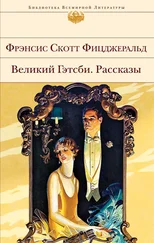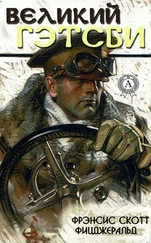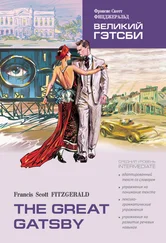Freud– Sigmund Freud (1856–1939), Austrian psychiatrist, the founder of psychoanalysis
Damenstiff Strasse= Damenstiff Street (German)
stiff= guy (colloquial)
the Fairy Blackstick– a fictional character from ‘The Rose and the Ring,’ a tale by William Makepeace Thackeray(1811–1863), English novelist, the author of the famous ‘Vanity Fair’
Tap Day– students’ holiday when they celebrate either entering the university or college, or joining some students’ organization
Elihu– here: the students’ organization of Yale University
Jung– Carl Jung (1875–1961), Swiss psychiatrist and psychologist, the founder of analytical psychology
Achilles’ heel– the only (or the most) vulnerable part (or side) of smb. (idiom)
Bar-sur-Aube– a town in Aube department in France
Grant– Ulysses Grant (1822–1885), US general, commander of the army in 1864–1865 during the American Civil War, the 18 thpresident of the United States; in 1854 Grant had to retire and went to live and work to Galena, a small town in Illinois.
the Albishorn– one of the bays on Lake Zurich
Vaudois– now, the name applied to the members of one of the Protestant Churches; historically, members of a Christian movement that originated in the 12 thcentury in France, later its members formed the movement of the Swiss Protestant Re-formation.
Cagliostro– Count di Cagliostro (1743–1795, original name Giuseppe Balsamo), an extremely popular in the 18th century Europe adventurer, traveler, alchemist and magician
Krapaelin– Emil Kraepelin (1856–1926), German psychiatrist, one of the most influential psychiatrists of his time
‘Cedars’– the name of one of the buildings of the clinic
transference– in psychology, the method of finding the basic cause of mental trouble
châlets– country houses typical for the Swiss Alps
plant– here: clinic
claret-colored = red
‘Daddy-Long-Legs’– a best-seller by Jean Webster (1876–1916), American writer and playwright
‘Molly-Make-Believe’– a popular book of its time
Mon Capitaine= my captain (French) ; official form of address.
Je m’en fiche= I don’t care (French)
Cherio= good luck, all the best ( parting phrases )
plus petite et moins entendue= even smaller and less experienced (French)
Joan of Arc (1412–1431)– a peasant girl, French national heroine, canonized in May, 1920
Tout à vous,= Yours… (French)
caesuras= pauses, intervals
Lausanne– a city in Western Switzerland, on the north shore of Lake Geneva
un homme très chic= quite a magnificent man (French)
Göttingen– the University of Göttingen in Germany, one of the most famous in Europe, founded in 1737 by George II of England
Lake Forest– a city on Lake Michigan in northeastern Illinois
une folie= folly (French)
the Tuileries Guard– the royal guard of the Tuileries Palace, French royal residence in Paris, destroyed in 1871; the soldiers of the guard were mainly of Swiss origin.
pince-nez– eyeglasses held only with a nose clip (without earpieces)
Gross-Münster– the cathedral in Zurich built in the 8 thcentury, a fine example of the Romanesque architecture
Lavater– Johann Kaspar Lavater (1741–1801), Swiss writer and Protestant pastor, the founder of physiognomy (the study of the relation between a person’s character and the features of the face or body structure)
(Johann) Heinrich Pestalozzi (1746–1827)– a famous Swiss educational reformer who designed methods and principles of elementary education
Zwingli– Huldrych Zwingli (1484–1531), the most important leader of the Swiss Protestant Reformation
Interlacken– a small town in central Switzerland, one of the country’s oldest summer tourist resorts
Frau= Mrs. (German)
upshine= light, lighting
Muy bella= very beautiful (Spanish)
Como– a city at the extreme southwest end of Lake Como in northern Italy, known since the Roman times
Suppe– Franz von Suppe (1819–1895), Austrian composer, the author of light operas
Buenas noches= good night (Spanish)
phonograph= record player
Lothario– an unfeeling seducer, a fictional character of the 18 thcentury literature
Valais– a canton in southern Switzerland on the border with Italy and France
St. Hilda’s– St. Hilda’s College for women at Oxford University, founded in 1893, named for Saint Hilda, the English saint of the 7 thcentury
Du lieber Gott! Bitte, bringe Dick noch ein Glass-Bier.= Good gracious! Please, bring Dick one more glass of beer. (German)
Bonjour, Docteur.= How do you do, Doctor? (French)
Bonjour, Monsieur.= How do you do, sir? (French)
Il fait beau temps.= The weather is fine today. (French)
Oui, merveilleux.= Yes, marvelous. (French)
Читать дальше
Конец ознакомительного отрывка
Купить книгу
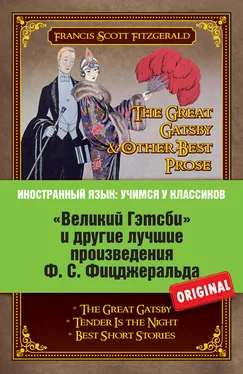




![Фрэнсис Фицджеральд - Великий Гэтсби. Главные романы эпохи джаза [сборник litres]](/books/431075/frensis-ficdzherald-velikij-getsbi-glavnye-romany-thumb.webp)
